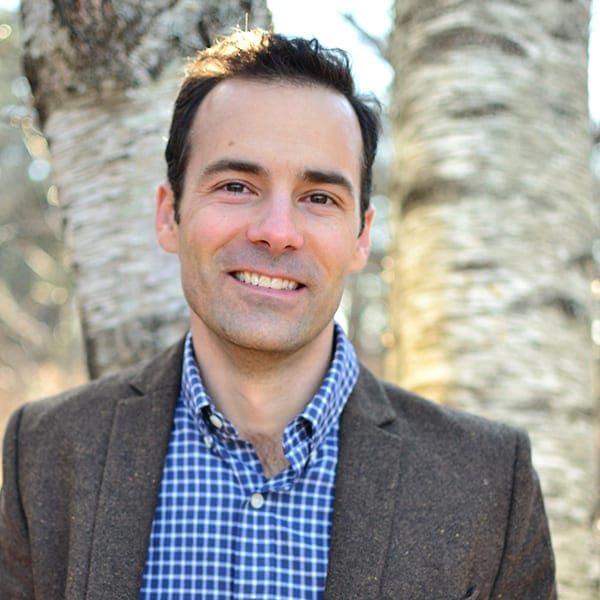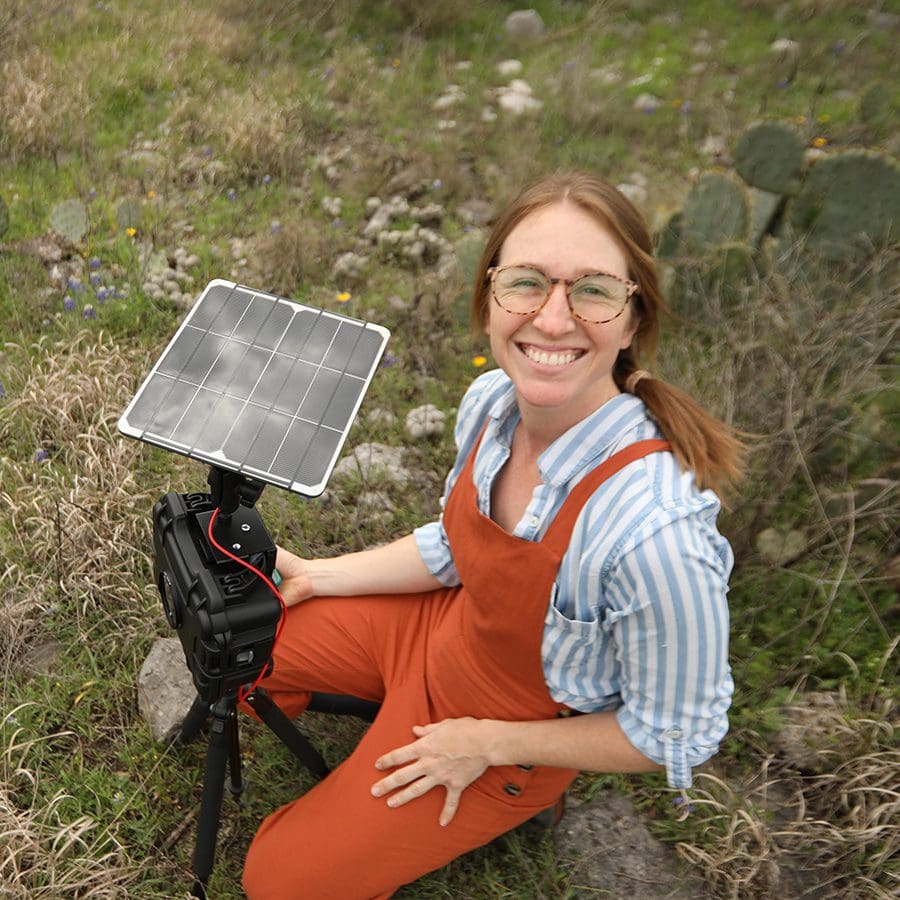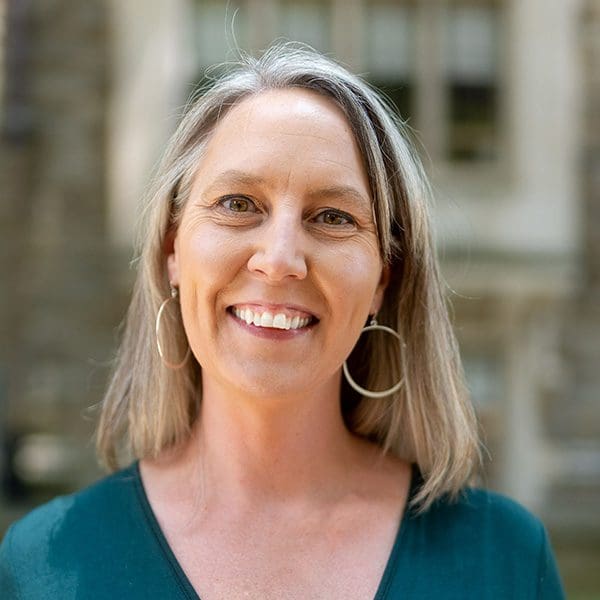
Agroforestry
Bachelor of Science
Next start date is May 20th. Applying is easy and free!
Building land sustainably
and creating career opportunities.
Enrolling in our Agroforestry program provides you a flexible, green-centric education and path to a budding career. You will acquire specialized knowledge blending agriculture and forestry, preparing for jobs in sustainable land use with immersive virtual labs and fieldwork.
With this degree, you’ll become a leader in sustainable agriculture, unlocking diverse opportunities in agribusiness, environmental consulting, and forestry. Connect globally, building a network beyond borders, and master technology with precision agriculture and data analysis for innovative green solutions.
Our program lets you invest in a sustainable future without financial strain. Join us to transform your green passion into a rewarding career, where every skill learned contributes to a thriving, eco-friendly world.
Program Overview
Agroforestry professionals plan, develop, and monitor multi-use land systems that integrate trees and shrubs with agricultural systems that produce food, fiber, and fuel through crops and livestock. In this program, learners will draw from the fields of forestry, ecology, agriculture, and economics to select species and identify practices (including alley cropping, riparian forest buffers, and windbreaks) suitable for specific contexts and purposes.
They will learn how to apply quantitative and qualitative approaches to forecast and measure agroforestry system outputs and services, including crop yields, carbon sequestration, and human behavior and health effects. Learners will have opportunities to develop and apply skills related to communication and community engagement as they design sustainable agroforestry systems that maximize provisional output, cultural value, and ecosystem services.
Program graduates will be prepared to apply their skills in a variety of occupations within both public and private sectors, including agroforestry or sustainable agriculture design or consultation, land management, community development, and permaculture design.
Career Outlook
Earn your degree
Unlock new opportunities.
Supervisors of Farming, Fishing, and Forestry Workers jobs in the U.S., 2021.
Supervisors of Farming, Fishing, and Forestry Workers pay, 2022.
Estimated U.S. job growth for Supervisors of Farming, Fishing, and Forestry Workers through 2031.
Supervisors of Farming, Fishing, and Forestry Workers jobs in the U.S., 2021.
Supervisors of Farming, Fishing, and Forestry Workers pay, 2022.
Estimated U.S. job growth for Supervisors of Farming, Fishing, and Forestry Workers through 2031.
*Source: O*Net/U.S. Bureau of Labor Statistics. Unity Environmental University cannot guarantee employment. Salary data represents averaged earnings for the occupations listed and includes workers at all levels of education and experience.
Experiential and Immersive Coursework
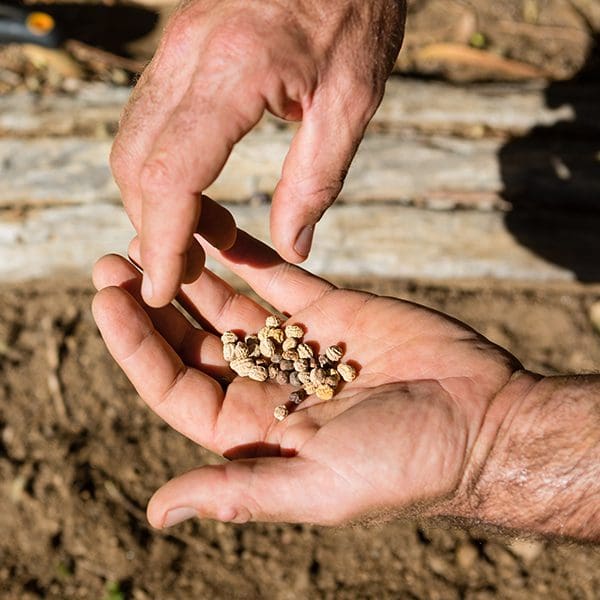
Agroforestry Systems Design
Develop a management plan for an agroforestry system, including methods to measure and monitor provisional outputs and ecosystem services.
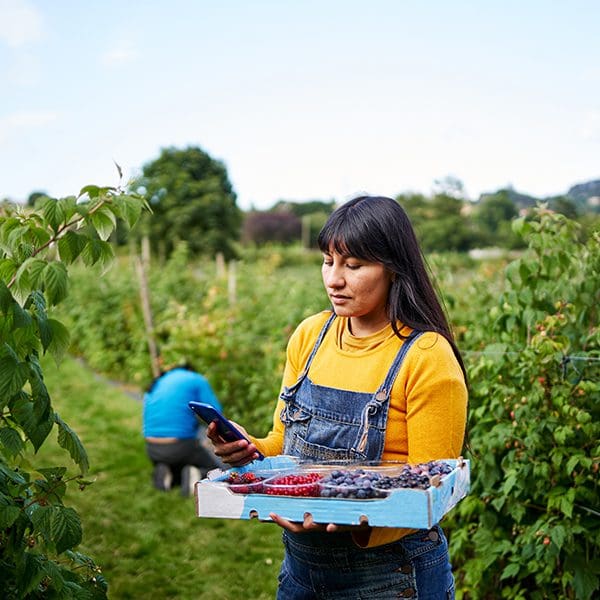
Building and Sustaining Urban Food Forests
In partnership with an urban food forest organization, gather and analyze evidence and propose strategies to enhance social, cultural, and ecosystem services provided by an agroforestry system.

Forest Ecology
The student will create an ecological inventory and analysis report, with accompanying presentation, for a forested area in their locality or region.
Agroforestry Degree Requirements and Courses
The Agroforestry degree requires 120 credits. You may transfer in up to 90 credits from outside institutions. View our full course catalog for a better look into your program. For more details, browse our Agroforestry degree checklist. Then apply online for free to get started.
Frequently Asked Questions
-
What is Agroforestry?
Agroforestry is a holistic land management approach that combines agriculture and forestry practices in a symbiotic manner. It involves the intentional integration of trees, crops, and/or livestock on the same piece of land to create a diverse and resilient ecosystem. This practice aims to enhance agricultural productivity, conserve natural resources, and promote environmental sustainability. Agroforestry systems can take various forms, such as alley cropping, silvopasture, and forest farming, each offering unique benefits like improved soil health, increased biodiversity, carbon sequestration, and economic diversification for farmers and communities. By leveraging the synergies between trees and agricultural activities, agroforestry contributes to food security and ecological balance.
-
What courses will I be taking
General Education Core: 32 credits
Environmental Professional Core: 13 credits
Elective Courses: 30 credits
Program Core: 45 credits- AGRO 101: Introduction to Agroforestry
- AGRO 201: Nutritional and Medicinal Resources of North American Forests
- AGRO 301: Agroforestry Systems Design
- ANIM 205: Animal Nutrition
- ANIM 310: Sustainable Livestock Health, Nutrition, and Care
- BIOL 201: Organisms that Sustain the Earth: Understanding Plants
- BIOL 330: Integrated Pest Management
- BIOL 340: Forest Ecology
- BIOL 350: Arboriculture
- CHEM 101: Chemistry I
- ENVJ 307: Food Systems and Social Justice
- ESCI 301: Soil Analysis
- GISC 101: Introduction to Geographic Information Systems (GIS)
- MATH 203: Applied Mathematics for Land Management
- SUST 401: Building and Sustaining Urban Food Forests
For course requirements and a better look into your program, view our full course catalog. Then apply online for free to get started.
-
How fast can I finish?
Our comprehensive 120-credit program can be tailored to fit your schedule and goals! Completion time is flexible, determined by the number of credits you choose to take each term (8 terms/year) and less time with transfer credits. Without transfer credits, you can anticipate the following completion times:
- 48 credits/year: Fast-track your education in only 2.6 years
- 30 credits/year: Achieve your degree in 4 years
- 24 credits/year: Complete in just 5 years
-
How much does it cost?
Your online education should be affordable and manageable. Our team of distance education concierges will work with you through the admissions process to help you plan and pay for your degree. Learn more about the costs here.
Program Features
High Value Education: Nationally recognized for the quality of our programs delivered at an affordable price.
Social Mobility: Unity ranks in the top 15% of colleges in the U.S. for fostering upward mobility.
Sustainability Core: All programs are committed to sustainable practices, preparing you for a future of environmental awareness in all fields.
Flexible Learning: Balance work and education effortlessly by choosing when and where you want to study.
Flexible Start Dates: 8 start dates per year allows you to control your schedule
Personalized Guidance: Benefit from individualized academic and professional advising, where we are dedicated to turning your career and academic aspirations into tangible achievements.
Transfer-Friendly: Shorten your academic timeline, since we accept up to 90 credits to value your prior academic achievements.
Experts in the Field
At Unity Environmental University, our Faculty is comprised of a wide range of environmental science experts who in addition to teaching, conduct their own research and various fieldwork.

Dr. Don Spence
Subject Matter Expert
Meet Dr. Don Spence – a Ph.D. holder in plant pathology and Board Certified Master Arborist with a journey as diverse as his expertise. From global Coast Guard service to in-depth explorations of invasive species, gardening, and tree health, his career is a dynamic blend of academia and real-world impact. As a proud member of Native Plant Societies and a leader in conservation, Dr. Spence brings unparalleled insights. Join him in uncovering the secrets of plant ecology and the importance of native plants in urban landscapes. Your gateway to a greener world begins with Dr. Spence
Faculty Profiles


